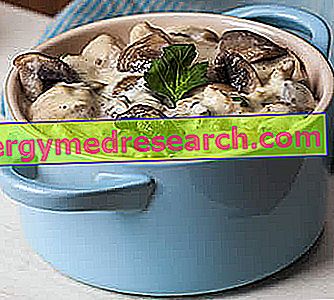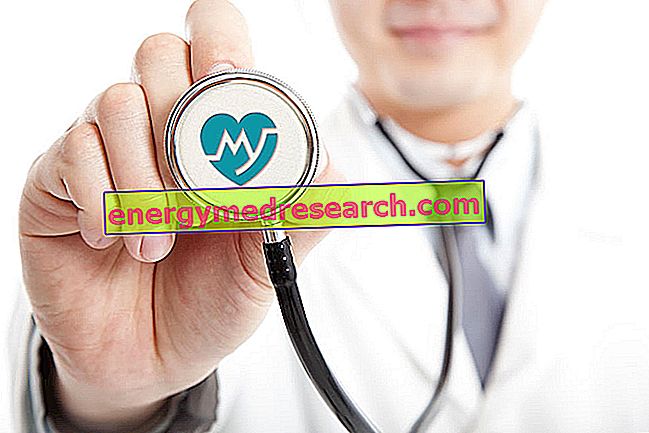What does it mean?
There is talk of hyperglycemia when the rate of glucose in the blood borders on abnormality in excess:
Glycemic values at FAST (mg / dl) * | |
| HYPOGLYCAEMIA | <60 |
| NORMAL | 60-110 |
| HYPERGLYCEMIA | > 110 |
| Fasting Fasting Blood Glucose (IFG) * | 100-125 |
| Diabetes | > 126 |
* During the day, oscillations ranging from 60 to 140 mg / dl are considered normal. There is talk of post-prandial hyperglycemia when the blood sugar level exceeds 140 mg / dL two hours after a meal.
- greater than or equal to 110 mg / dL (6.1 mmol / L), but still less than 126 mg / dL (6.9 mmol / L, which are pathognomic of diabetes) - WHO World Health Organization guidelines -
- greater than or equal to 100 mg / dL (5.6 mmol / L), but still less than 126 mg / dL (6.9 mmol / L, which are pathognomic of diabetes) - ADA American Diabetes Association guidelines .
Blood glucose regulation
Just as the efficiency of an engine depends on the optimal injection of gasoline into the cylinders, in order to function at its best the body needs the right amounts of glucose, which represents an almost essential energy source for the cells (especially for red blood cells and brain) .
Even when blood glucose concentrations become excessive (hyperglycemia) a healthy organism is perfectly capable of handling the situation
- increasing the release of insulin (a hormone produced by the pancreas that promotes the passage of glucose from the blood to the cells, which use it for energy purposes or convert it into fatty acids);
- inhibiting the secretion of hormones that increase blood sugar (hyperglycemic).
In opposite situations, that is when blood glucose is scarce (hypoglycemia), the body intervenes in a diametrically opposite manner, reducing the secretion of insulin and increasing that of hyperglycemic hormones, such as glucagon and glucocorticoids. In this way, a fine mechanism to control glycemic levels is created, which decrease in prolonged fasting (hypoglycemia) and increase after a large meal (hyperglycemia). When something in this homeostatic mechanism breaks down, the glycemic control is deficient and the excess or defect of glucose determine a series of problems for the organism.
Symptoms
Hyperglycemia is a clinical condition characterized by "three Ps":
- polyuria: increase in the amount of urine released during the day;
- polydipsia: increased thirst;
- polyphagia: increased hunger;
Other common symptoms of hyperglycemia are weight loss (when the condition becomes chronic), vision blurring, easy fatigability, nausea and vomiting, drowsiness, redness and skin dehydration, xerostomia (poor and altered salivary secretion), acetonemic breath (smell of ripe fruit) and candida infections. This last symptom is due to the loss of glucose with urine (glycosuria), which favors the bacterial colonization of the urinary tract. In extreme cases, hyperglycemia can lead to coma and even death. Note, however, that beyond this ominous and rare occurrence, the first symptoms of hyperglycemia tend to manifest themselves clearly only above 180/200 mg / dL; on the other hand we must not forget that glycemic levels chronically higher than 125 mg / dl are in any case able to cause, in the very long period, important organ and vascular damage.
Diagnosis
The diagnosis of acute hyperglycemia arises through a common blood test aimed at measuring blood glucose; this test, which can also be performed at home, can be accompanied by the research of glucose and ketone bodies in the urine and by the blood dosing of the C peptide and glycated hemoglobin (useful for monitoring the average blood sugar level in the last two - three months).
Causes
The most known cause of hyperglycemia is undoubtedly diabetes mellitus, a disease characterized by a defect in the secretion and / or action of insulin. Besides it, however, many other hormones intervene in the regulation of the glycemic levels of the organism and even more numerous are the conditions potentially able to cause hyperglycemia, both acute (ie limited in time) and chronic (persistent).
HYPERGLYCEMIA FROM STRESS
In conditions of severe physical stress - for example during an infection, a serious illness (heart attack) or after surgery - the blood levels of hyperglycemic hormones - such as catecholamines and cortisol - increase significantly.
MEDICATION HYPERGLYCAEMIA
In the diabetic with hypoglycemic therapy, hyperglycemia very often results from the insufficient administration of insulin or hypoglycemic drugs. The cortisones, mimicking the action of cortisol, increase serum glucose concentrations like epinephrine (adrenaline). Other medicines that promote hyperglycemia include: beta blockers, thiazide diuretics, niacin, growth hormone, protease inhibitors, pentamidine, asparaginase and some antipsychotics.
HYPERGLYCEMIA FOR BEHAVIORAL HABITS
abruptly reducing the level of physical activity or consuming a meal rich in carbohydrates contributes, especially in the diabetic patient, to significantly elevating glycemic levels. Mild hyperglycemia is often seen even during pregnancy; although it is frequently found, this condition still deserves careful monitoring, in order to better manage the possible appearance of gestational diabetes.
Cures and Remedies
Considering the understandable difficulties in summarizing such vast and complex topics within a single article, below are the links to the related in-depth articles:
- All remedies for lowering blood sugar
- Diet and Food for Lowering Blood Sugar
- Drugs to lower blood sugar
- Supplements and Natural Remedies for lowering blood sugar (see also the scheme on supplements and herbal remedies potentially useful in case of diabetes)



